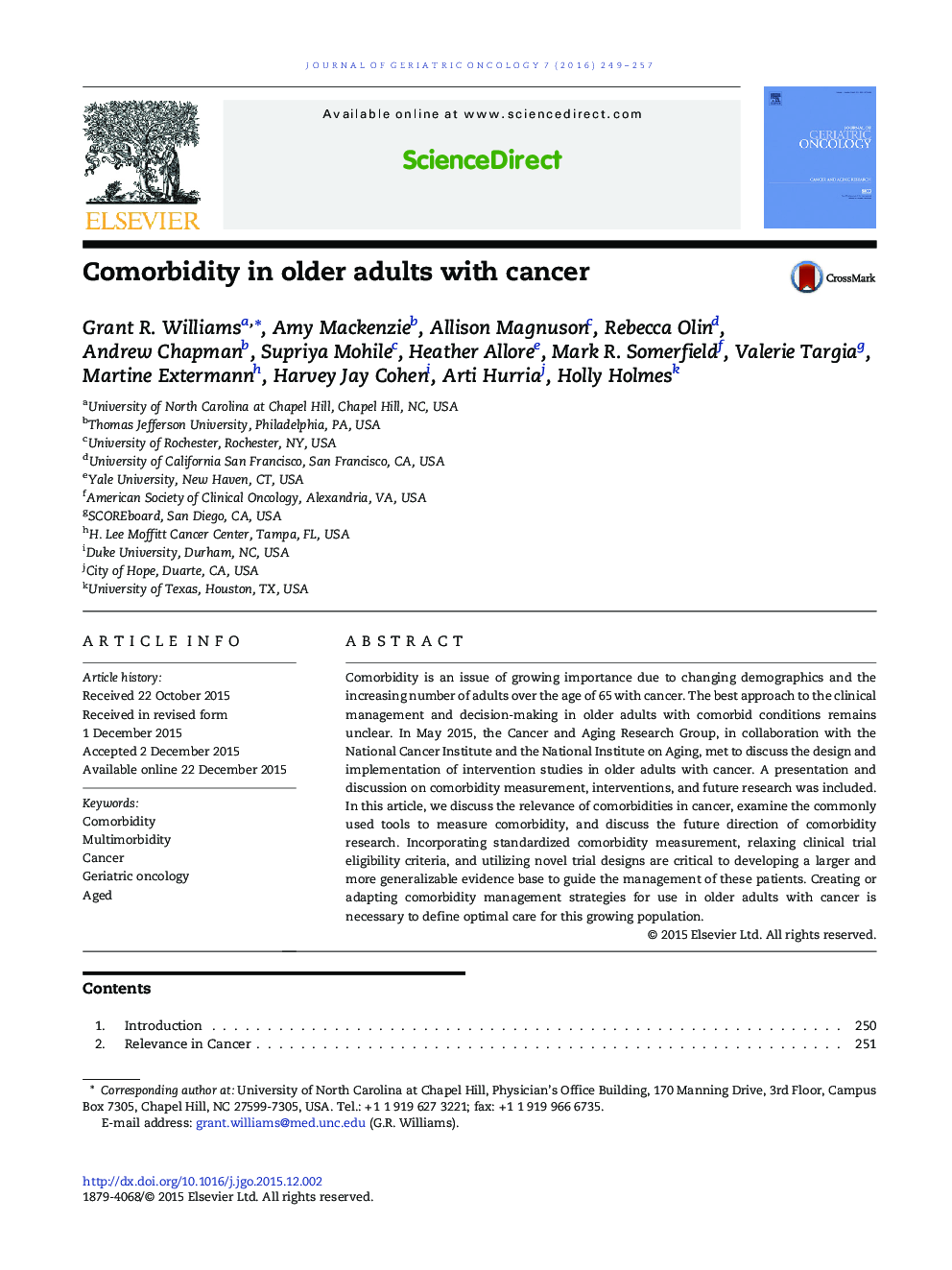| کد مقاله | کد نشریه | سال انتشار | مقاله انگلیسی | نسخه تمام متن |
|---|---|---|---|---|
| 1912197 | 1400161 | 2016 | 9 صفحه PDF | دانلود رایگان |
Comorbidity is an issue of growing importance due to changing demographics and the increasing number of adults over the age of 65 with cancer. The best approach to the clinical management and decision-making in older adults with comorbid conditions remains unclear. In May 2015, the Cancer and Aging Research Group, in collaboration with the National Cancer Institute and the National Institute on Aging, met to discuss the design and implementation of intervention studies in older adults with cancer. A presentation and discussion on comorbidity measurement, interventions, and future research was included. In this article, we discuss the relevance of comorbidities in cancer, examine the commonly used tools to measure comorbidity, and discuss the future direction of comorbidity research. Incorporating standardized comorbidity measurement, relaxing clinical trial eligibility criteria, and utilizing novel trial designs are critical to developing a larger and more generalizable evidence base to guide the management of these patients. Creating or adapting comorbidity management strategies for use in older adults with cancer is necessary to define optimal care for this growing population.
Journal: Journal of Geriatric Oncology - Volume 7, Issue 4, July 2016, Pages 249–257
